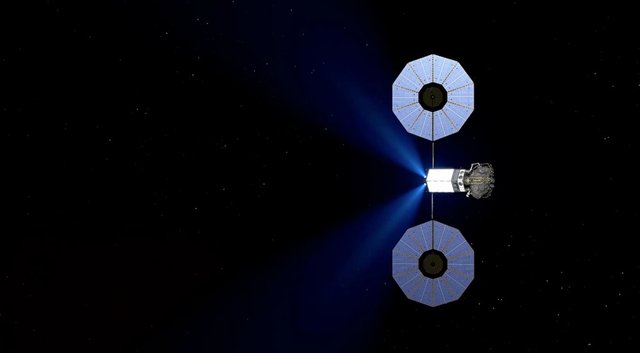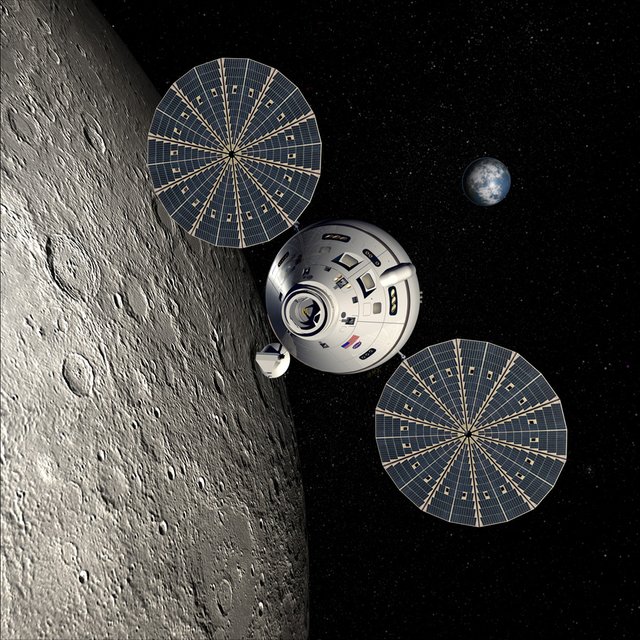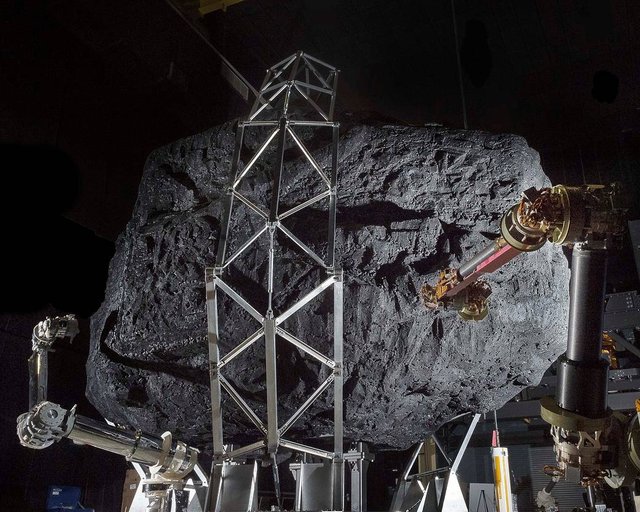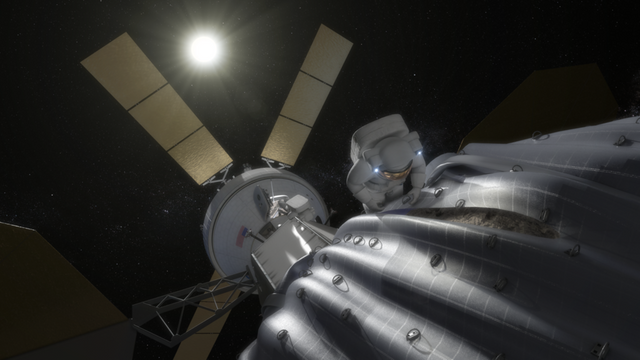NASA is cancelling Asteroid Redirect Mission
Asteroid Redirect Mission (ARM) was proposed in 2103 by Obama administration on the wave of private enterprises for asteroids mining. It was an ambitious mission for sending a robotic spacecraft to a near Earth asteroid, where it would pick a boulder up to 10 meters across and transport it with robotic tug to cislunar space.

Image: NASA - Tug with ion propulsion thrusters is going to its target
Astronauts flying on an Orion spacecraft would then visit the boulder, performing studies and collecting samples for return to Earth.

Image: NASA - Orion at cislunar orbit, heading to captured boulder. In this artist's impression the early rounded version of solar panels shown. In present design, they are linear
The mission, though, struggled to win support since its introduction in 2013, particularly in Congress, where members were skeptical that the mission was on the critical path for NASA’s long-term goal of sending humans to Mars in the 2030s. At recent hearings on NASA’s 2018 budget request, members showed no interest in reversing plans in the proposal to cancel the mission.
However the technologies, developed in the ARM program will be used in other missions, especially the solar-electric propulsion system that would have been flown on the robotic mission.
NASA Acting Administrator Robert Lightfoot said that a version of that solar-electric propulsion system could fly in the early 2020s as the “power propulsion module” of the agency’s proposed Deep Space Gateway outpost in cislunar space:
It would build right off of the bus that we had for the Asteroid Redirect Mission. The unit planned for that outpost, likely would be smaller than the one envisioned for ARM, making it “more commercially viable for other uses
Another tecnologies will be used in the future missions for asteroid mining.

Image: NASA - mockup of the asteroid for docking testing
Sadly, but this is the end of ARM. Of course, asteroid capturing is not crewed landing ot the Mars surface, but idea was great. It could become precursor for the nest Asteroid Deflection Mission.

Image: NASA - astronaut, studying asteroid's surface. Artist's impression
Besides, starting to use asteroid resources is perfectly fit in Elon Musk vision: to establish in key points of the Solar System the network of fueling stations for the spaceships, traveling to different destinations.
At least, the other robotic missions to asteroids are not affected. In 2018, OSIRIS-Rex and Hayabusa-2 will reach their destinations. There are in development two other missions - Psyche and Lucy, scheduled for launch in 2021 and 2022
For further reading: http://spacenews.com/nasa-closing-out-asteroid-redirect-mission/
I find the the right decission.
For many years astronauts have been working on space doing experiments which also were benefitial to humankind but companies have also being using for their own profit. That's science. Scientifics research and some other people try to apply the results as a product.
However, the ARM was just a demonstration about what Orion could do and the only ones would benefit from that mission would be the planetary mining srart-ups which would get to one asteroid sooner. There is no profit for the Orion project.
Remember that Mars is the goal and cancelling the ARM will focus in that target.
I'm of just the opposite opinion: instead of struggling with landings to cold and sterile planet, it's better to create infrastucture in the space - refueling stations, getting the raw materials etc.. Propulsion technologies, closed cycle life support systems and use of local resources would be better at this stage. I know the argument that one geologist could do in 3 days on Mars more than Curiosity done in 5 years, but geologist, sitting on Mars orbital station and controlling swarm of cheap rover in real time is better solution IMO. Until we find some hospitable world of course.
As far as NASA ahs still not showed any way they intend to really land men on Mars
that is what will probably happen.
Orion is only an orbiter and the only expansion NASA has shown is the habitacle. Anything else.
The ARM mission would have delayed the real goal: put that geologist on Mars. We know much more about Mars than about asteroids. If the ARM would have included a geologist, he/she will likely learn a lot about the body, but it is much more interesting closing the knowledge about Mars. Putting it in Mars will make humanking nerear to that point where we knew almost everything about the red planet.